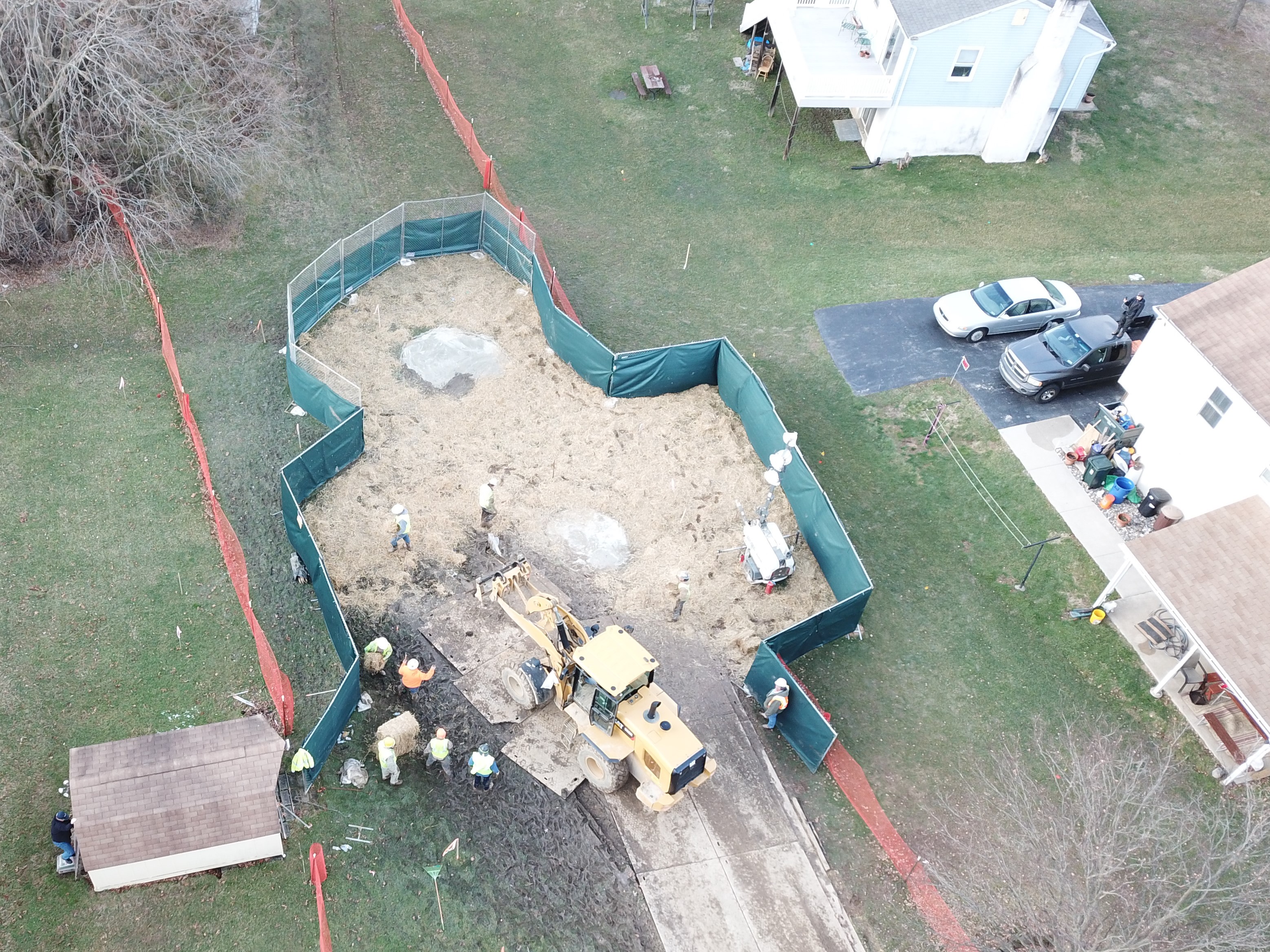An odd twist of corrosion & transmission
February 2nd, 2023
Jury awards Fayette County dairy $4.75M in stray voltage lawsuit
Here’s the part that jumped up and hollered:
I’m familiar with the notion that transmission lines over pipelines can/do corrode the pipeline, so this use of “an anti-corrosion system that sends electricity into the ground to protect the pipeline” seems counter intuitive. So digging just a bit, the term “cathodic protection,” which does ring a bell.
Cool Science: Using Electricity to Fight Corrosion
And that article says:
To fight corrosion, we employ a technique called cathodic protection, which literally uses electrical currents to prevent rust.
With cathodic protection, a flow of electrical current is applied from an external source – a rectifier – through the ground and onto the steel pipe. The protective current changes the environment around the steel, stopping the corrosion reaction.
And “cathodic protection” is not a new concept either.
The intersection of these two concepts is what’s got me stumped. Adding this to the list of things to look into when I’m in a warm and isolated cabin up north!
PROCEDURE ALERT: PUC going off in the weeds with “modifications”
June 28th, 2018
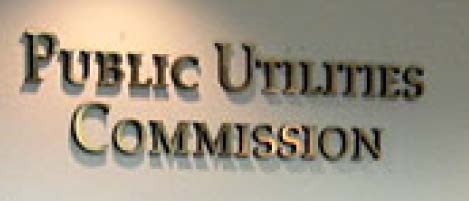
We’re in another day of Enbridge Line 3, today no oral argument or comments, it’s deliberation only. In the intro, Commissioner Sieben introduced a lot of modifications, laid out on a sheet of paper which was passed around to Commissioners, and then Commissioner Tuma did the same with I believe a couple of sheets (he seems to introduce something at every meeting, spring it on people, with no time to review). Now they seem to be negotiating how they’re going to approve the Certificate of Need. ?? I have no idea what they’re talking about, there are no copies for the public, and the documents Commissioners Sieben and Tuma have not been eFiled. ???
Sierra Club and other intervenors have filed a Motion objecting to entry of new information that has not been subject to review, and that the information should be subject to a contested case proceeding before the Administrative Law Judge.
20186-144310-01_New Info_Remand for Contested Case Proceeding
As they’re going now, it’s as if they are negotiating a settlement with Enbridge, but hey, what about the intervenors, who are parties with equal standing in this?
They’re talking about “beneficiary,” but what they’re searching for is “additional insured.” And they’re talking about unavailability of insurance for this, well, this is right along the lines of Price-Anderson for nuclear, where we subsidize the industry with no-fault coverage with nominal recovery allowed!
I have tried to get copies eFiled of the Sieben and Tuma sheets that have been passed around, struck out. Ain’t happening.
They’re talking about a “landowner choice” program where landowners have the option of removal of the old Line 3 from their land. Schuerger is raising issue of need for informed consent. YES! So can we hear from intervenors about all this? Big issue — all of this is proposed to be handled in a Compliance Filing, and there’s no procedural option for anyone to comment on compliance filngs, unless people just jump in and take it upon themselves to file comments — but there’s no suggestion or guarantee that any comments on what Enbridge comes up with, that it will even be considered.
What a mess… Certificate of Need approved, with directive to adopt the Recommendation of the Administrative Law Judge to the extent that it is consistent with their decision — that’s backwards, putting the cart before the horse. Are they making such a mess of this so that on appeal the court will throw it out?
Now on to the route permit.
Webcast of Line 3 deliberations at PUC
June 27th, 2018
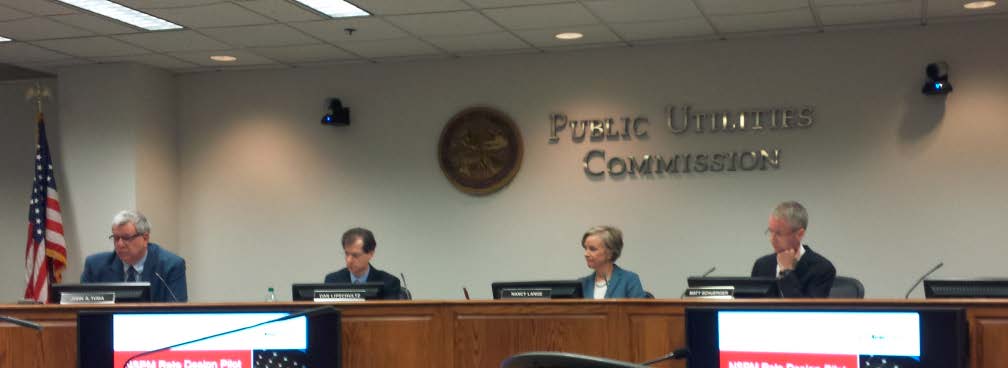
LISTEN HERE: http://minnesotapuc.granicus.com/MediaPlayer.php?event_id=1856
It’s pretty disturbing. Today started out with the Commission asking Intervenors to pick their least awful route option. WHAT?!?! That is NOT how a line is chosen. I think they’re using that to build a “record” (NOT!) for whatever decision they may make.
As the Commission was reminded, the Commission is to choose a route, only AFTER a Certificate of Need is granted, based on the criteria in the statutes and rules. Commissioner Sieben turned to a pretty manipulative attempt at burden of proof shift, looking for a statement to get them off the hook. NO!
NO? That’s correct. This is the Commission’s job, and if there’s no need, deny the application. If there’s no acceptable route, deny the application. The ALJ made a Recommendation, and the Commission has to deal with that.
Then there’s the push about System Alternative SA-04. That route would go right through my Association of Freeborn County Landowners’ community, and AFCL filed an Exception regarding that SA-04 route:
Line 3 – Exceptions to ALJ’s Report
Sieben keeps saying it’s a “difficult decision.” Yeah, it is.
Lipschultz keeps asking which alternative is least objectionable. NO. JUST STOP THAT!
Perspectives on the Line 3 pipeline decision
April 27th, 2018
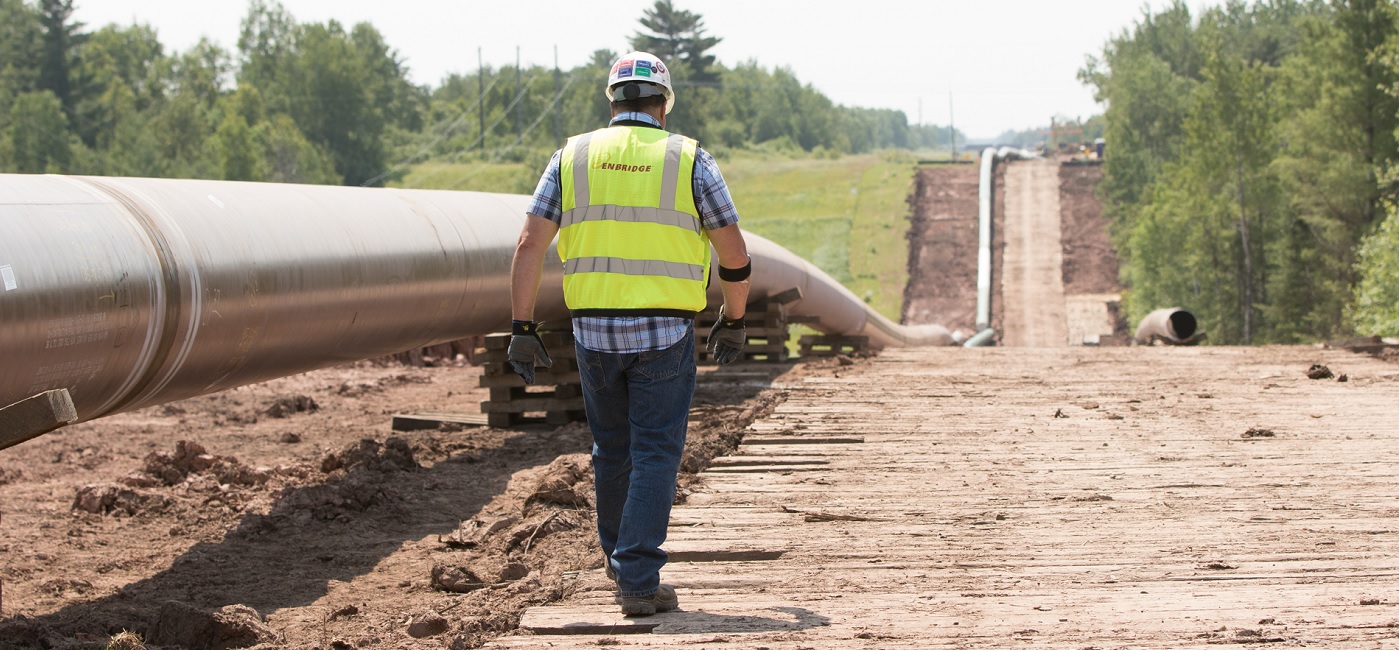 Fair use – from Enbridge’s Line 3 website
Fair use – from Enbridge’s Line 3 website
Looks like a lot of folks are angry with Judge O’Reilly’s Enbridge Line 3 decision.
Oh well… she had to make some decision and I think she did an excellent job of weighing all the factors, getting into the details in a very difficult case, and come up with a Recommendation that pisses everyone off! That’s something that takes a LOT of work and is very hard to do!
Here’s a post on it with an insightful/inciteful framing of the decision and what it means:
Pipeline “poison approvals”: a new trend?
In the press, people are getting wound up. From MPR:
Dayton: No ‘viable way’ to build new Line 3 pipeline on current route
From the MPR piece: The Leech Lake Band of Ojibwe has denounced the judge’s recommendation, calling it “a clear attack on sovereignty and Tribal communities.”
My take is that O’Reilly laid out the Leech Lake Band’s sovereignty and power and the lay of the land as it exists now — the easements are there now, allowing Enbridge to use the land until 2029. This recommendation sets the stage for the easement renegotiation in 2029, where the Band has power to say “NO!” and Enbridge is very afraid of that, facing either outright refusal or greatly increased easement payment as the obvious outcome. This Recommendation, and use of the existing easement gives Leech Lake greater leverage going forward, and might even move those easement negotiations up in time. If that renegotation is a decade in the future, Enbridge will also by then be operating in a very different world than exists right now, with decreased oil use and demand. O’Reilly also noted that if a new corridor were used with this, given state non-proliferation, Enbridge would logically seek to use that corridor for all its pipelines going forward.
Along this line (but note that LaDuke, Honor the Earth, is the one quoted, and there are no quotes from Leech Lake or Fond du Lac tribal officials, who should be the ones weighing in here):
Minnesota Pipeline Ruling Could strengthen Tribes’ Legal Case Against Enbridge Line 3
And more, this with quotes from tribal officials:
Major pushback against Line 3 recommendation
In a statement Tuesday, April 24, the Leech Lake Band of Ojibwe described the recommendation as “anti-sovereignty” and said that it “puts undue burden on the Leech Lake Band of Ojibwe to hold the risk of the pipeline replacement and to revoke the permit.”
“The judge has made this horrific recommendation without even holding a single ALJ hearing on the Leech Lake Reservation and gave a recommendation on a route that has not had the same level of environmental review,” wrote Ben Benoit, the band’s environmental director.
Once more with feeling — If you have comments, objections, there’s been a notice issued regarding submission of “Exceptions” which are due May 9, 2018:
20184-142282-01_Exceptions Notice
Pipeline shut down in PA
March 8th, 2018
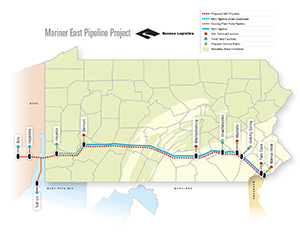
Look at those nice calm colors that make this look so innocuous… GUESS AGAIN!
The Pennsylvania Public Utilities Commission has ordered the Mariner East Pipeline Project shut down.
PUC orders Sunoco pipeline shutdown after sinkholes expose bare pipe near Exton
Here’s the project site:
And PA site:
Mariner East II – PA DEP – PA.gov
And a photo of the sinkhole site, right in the middle of a neighborhood:
And another:
 PA Environmental Daily Blog – fair use
PA Environmental Daily Blog – fair use
And it’s “Energy Transfer Partners” on this one:

